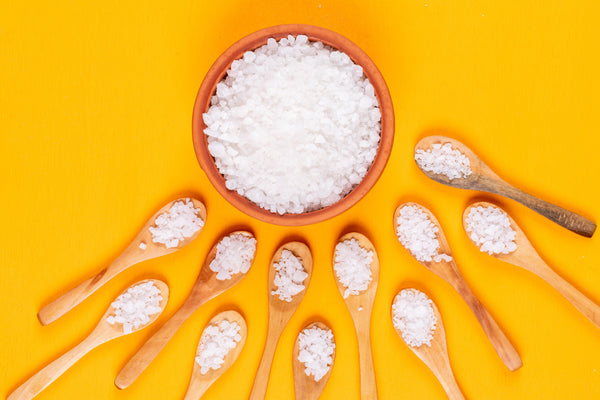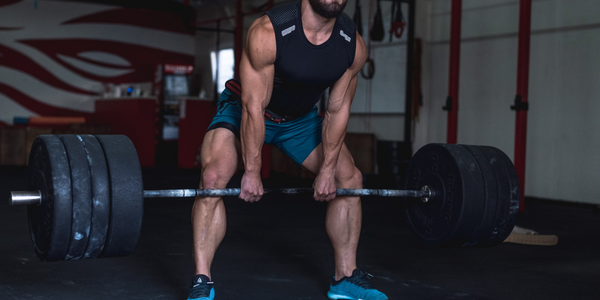In the world of sports and athleticism, the relentless pursuit of excellence is not just about logging hours in the gym or mastering technical skills on the field. One of the most powerful, yet often underestimated, tools for enhancing athletic performance is sleep. While many athletes focus on training regimens and nutritional strategies, the quality of sleep can make or break peak performance. As we delve into the science behind rest and recovery, we uncover how sleep is not just a passive state of rest, but a dynamic period of rejuvenation that directly impacts an athlete's physical, cognitive, and emotional well-being.
Introduction to Quality Sleep and Athletic Performance
Sleep is a cornerstone of health and wellness, playing a vital role in physical recovery, mental acuity, and emotional resilience. For athletes, sleep is even more crucial as it directly influences performance. Research shows that athletes who consistently get adequate sleep experience a 9% improvement in accuracy compared to those who are sleep-deprived. This underscores the importance of sleep as an integral part of an athlete's training regimen.
The Science of Quality Sleep, Muscle Recovery, and Performance
During sleep, the body engages in critical processes that aid muscle recovery and performance enhancement. The release of HGH or human growth hormones is a key aspect of this, as they play a significant role in muscle repair and growth. Growth hormones are primarily released during slow-wave sleep (SWS), also known as deep sleep, which constitutes about 20% of total sleep time. This phase of sleep helps repair damaged muscle tissue, during intense physical activity, enabling athletes to bounce back stronger and faster. Research has shown that sleep deprivation leads to a 45% increase in cortisol levels, highlighting how crucial restful sleep is for optimal physical performance.
Cognitive Benefits: Focus, Decision-Making, and Coordination
Athletic performance is not just about physical ability; it also requires sharp mental acuity. Sleep plays a vital role in cognitive functions such as focus, decision-making, and coordination. During sleep, particularly in the rapid eye movement (REM) phase, the brain consolidates memories and processes information acquired during the day. This is critical for athletes who need to recall strategies, techniques, and patterns.
This cognitive edge is essential for quick decision-making and maintaining focus during high-pressure situations. Moreover, sleep enhances motor skills and coordination, allowing athletes to execute complex movements with precision and agility.
Immune System and Injury Reduction: The Mechanisms
Sleep is a powerful ally in bolstering the immune system and reducing the risk of injuries. During sleep, the body produces cytokines, proteins that play a crucial role in fighting inflammation and infections. A robust immune system helps athletes recover from intense training sessions and ward off illnesses that could sideline them.
Inadequate sleep can impair immune function, increasing susceptibility to infections and prolonging recovery times. Research has shown that athletes who get sufficient sleep are 25% less likely to suffer from sports-related injuries. Sleep promotes better coordination, reducing the likelihood of accidents and injuries due to fatigue-induced errors.
Practical Tips for Improving Quality Sleep
Given the myriad sleep benefits for athletes, it is essential to prioritise quality rest. Here are some practical athlete sleep tips to enhance sleep quality:
- Establish a Consistent Sleep Schedule: Going to bed and waking up at the same time each day helps regulate your body's internal clock, promoting better sleep quality.
- Create a Relaxing Bedtime Routine: Engage in calming activities such as reading, meditation, or gentle stretching before bed to signal to your body that it's time to wind down.
- Optimise Your Sleep Environment: Ensure your bedroom is conducive to sleep by keeping it dark, cool, and quiet. Invest in a comfortable mattress and pillows to support restful sleep.
- Limit Screen Time Before Bed: The blue light emitted by screens can interfere with the production of melatonin, a hormone that regulates sleep. Aim to avoid screens at least an hour before bedtime.
- Monitor Your Diet and Hydration: Avoid consuming caffeine and heavy meals close to bedtime. Staying hydrated throughout the day supports overall health and sleep quality.
Wrapping Up
The role of sleep in achieving peak performance cannot be overstated. As we have explored, the rest and recovery science behind sleep underscores its importance as a fundamental pillar of athletic success. From muscle recovery to cognitive enhancement and injury prevention, sleep is a powerful tool athletes can leverage to gain a competitive edge. By prioritizing quality sleep, athletes can unlock their full potential and achieve new heights in their performance.
Frequently Asked Questions
Why is it important for athletes to get Quality sleep?
Good sleep is crucial for athletes because it enhances muscle recovery, cognitive function, and overall performance, enabling them to perform at their best.
How can Quality sleep improve performance?
Sleep improves performance by facilitating muscle repair, boosting reaction times, and sharpening decision-making skills.
How does sleep affect physical activity?
Sleep affects physical activity by improving endurance, reducing fatigue, and enhancing coordination and agility.
How does sleep improve your brain performance?
Sleep improves brain performance by consolidating memories, enhancing focus, and enabling faster information processing.



























 DOWNLOAD NOW
DOWNLOAD NOW
